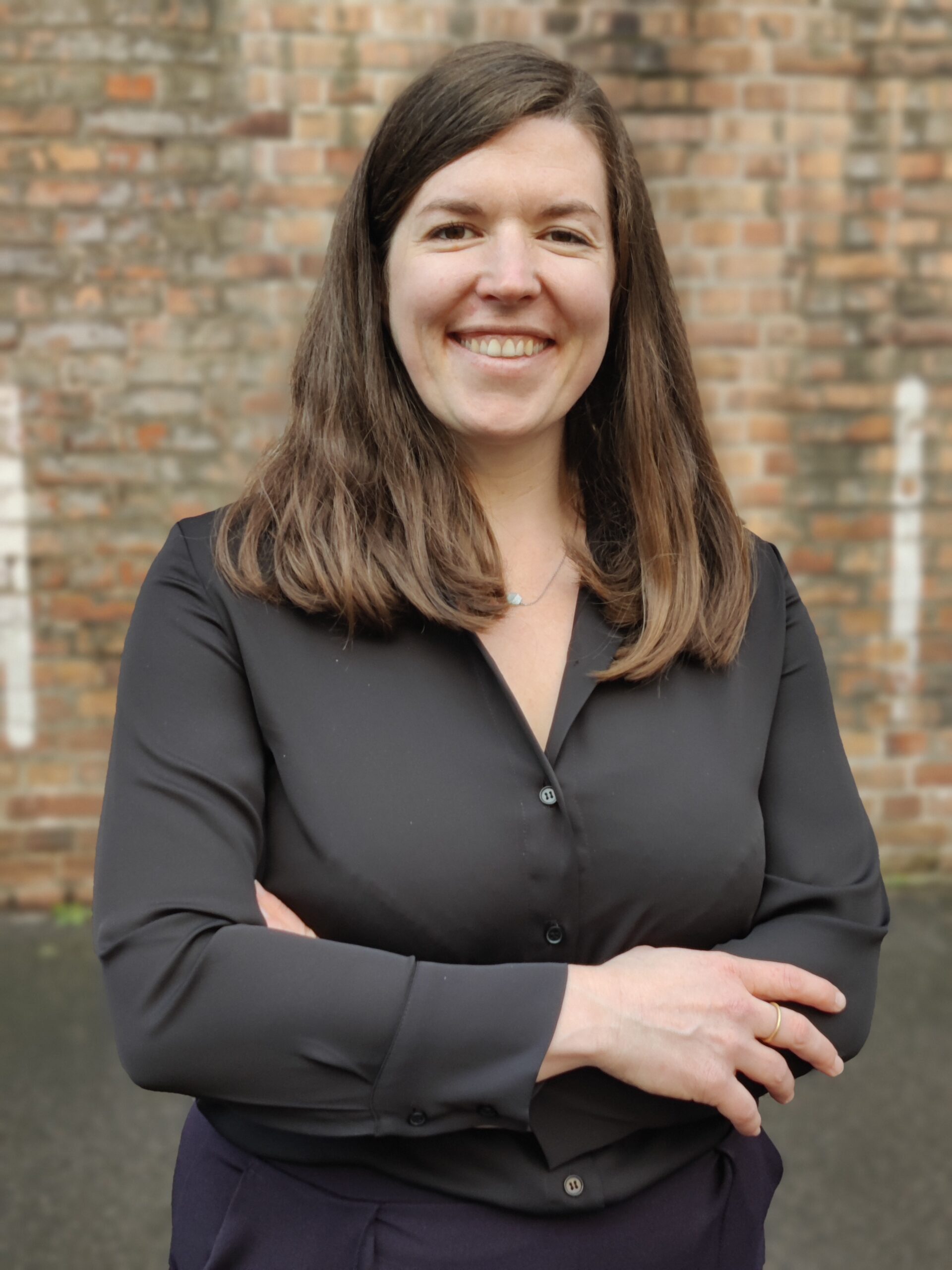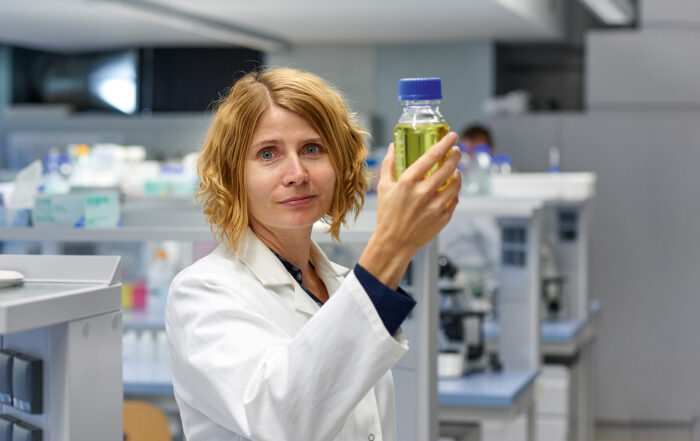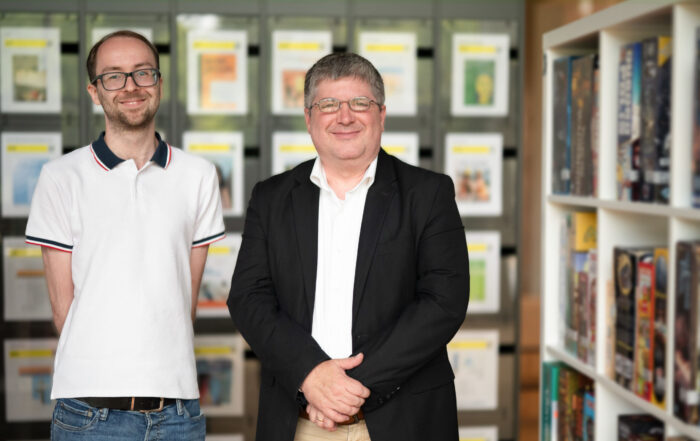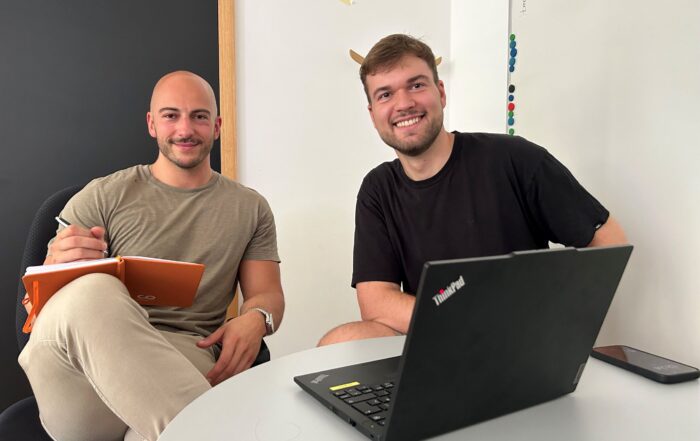2. May '24
When the pain begins, expectant mothers want to be sure that they are in competent hands.
This is when every woman giving birth wants the absolute attention of one-to-one care from a trained midwife.
At Coburg University of Applied Sciences, students are trained to become such birth professionals and equipped with the latest specialist knowledge.
The Viennese has traveled more than 500 kilometers to train the midwives of tomorrow – Prof. Karin Handl now teaches in Bamberg: “I want to accompany and support young people on their way to becoming midwives and ensure that they leave the university as competent midwives. You can’t know everything, but graduates need to be able to act, know their limits and know where to look if they don’t know something.” Midwifery Science is a dual Bachelor’s degree course in which students acquire the necessary theoretical and practical knowledge of obstetrics and infant care at the university.
For the entire duration of their studies at the Bamberg academies, they are employed in one of several partner clinics.
There they complete their internships, accompany experienced midwives on duty and gradually take on tasks.
At least once during their studies, they learn about freelance midwifery in an external internship.
The traditional midwifery training course is thus given a scientific foundation and skills that can no longer be dispensed with today, says Professor Handl: “The care and support of (expectant) mothers and newborns has always been the essence of training and will remain so as part of the course. The usual training will soon no longer exist and the dual study program will be the only training path to becoming a midwife.” Scientific work in obstetrics Because modern obstetricians also need more and more scientific work: How do you read and interpret a study?
How do you recognize good research?
And how can you research something yourself?
Handl assures us that these questions will be answered during the course: “Until now, many midwifery activities have been based on empirical evidence. The course expands this component to include scientific evidence, which has long been standard in medicine.”
One of the oldest professions in the world is thus receiving a valuable upgrade, which also makes it possible to become more independent of other professional groups at the research level.
A step long overdue in Germany, emphasizes Professor. However, the course is still being developed.
The professor knows that this is both an opportunity and a challenge: “With each year group, we get to know many young women who want to become midwives and are determined to get there. We have many external lecturers, practice partners and our core team who support the students. But we still need resources: personnel to expand the core team and time to design high-quality module handbooks, internship curricula and examinations.” Handl herself is doing her doctorate as a junior professor at Coburg University of Applied Sciences.
Her many years of experience as a midwife in the hospital service and in postnatal care help her to design her lectures in a practical way in order to impart knowledge and skills: “Scientific evidence, research findings and empirical evidence are the basis for me to select the relevant content for the course. The form of delivery depends on the course and makes it possible to take the students’ future working lives into account at an early stage. Sometimes we train in the ‘skills lab’ using a model to lead a birth, other times I present a topic and we share our experiences.”
Simulation under realistic conditions
At the Skills Lab These are rooms that are actually set up, such as delivery rooms, in which simulations take place in order to train work situations as realistically as possible.
Where it is already possible, the students themselves get to research and explore. The professor knows that this form of midwifery teaching has concrete consequences for expectant mothers: “Reviewing interventions and weighing up the benefits and risks will bring about a change in the use of these interventions. Some activities will disappear from obstetrics, others will become established. One-to-one care during childbirth, for example, leads to more vaginal births and fewer high-grade birth injuries. This has been scientifically proven and it is up to all of us to put this knowledge into practice.” Wanted specialists However, it is not just competence, but also working conditions and the shortage of specialists that have a direct impact on patients.
In a survey conducted by the German Midwives’ Association, 70% of the midwives questioned stated that they often care for three or more women at the same time in the clinic.
90 percent of midwives complained about working overtime (source: German Midwives Association, 2022).
Learning to deal with this is also part of the training: “No midwife likes to refuse to take over the care of women. It is even more difficult when there is too little capacity. Well-trained midwives who can responsibly perform a wide range of tasks are therefore needed even more today than before.” Despite some hurdles, Professor Karin Handl teaches with passion: “For me, it is a privilege to see how the students develop into competent personalities and mature both professionally and personally within three and a half years. It is something special to be involved in the development of a new degree course, even though the profession has been around for a very long time. This opportunity does not exist in many other professions. It’s nice when you can even get students excited about the history of their own profession – then you know that they’re in the right place.” The Midwifery Science degree program is affiliated to the Faculty of Applied natural sciences and health lasts seven semesters and leads to a Bachelor of Science degree. If you would like to get involved, you are welcome to support us as a professor or as a teacher on site in Bamberg.






